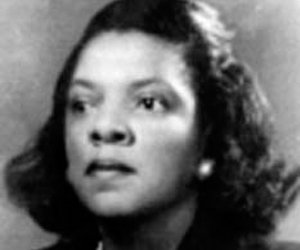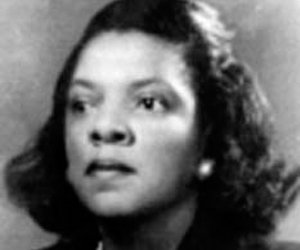

Lawrence, despite the rough racial climate, pushed his children to get the very best education possible. For Browne, that meant attending LeMoyne High School, a private institution that catered to black students. From there, Browne put together enough funds to attend Howard University in Washington, D.C.—an impressive feat in the Depression. Browne graduated cum laude in 1935.
Browne’s post-college life then re-routed her to New Orleans, where she landed a teaching job at Gilbert Academy. Determined to advance her education, Browne left her job after only a year and relocated to Ann Arbor, Michigan, where she earned her master’s (1939) and eventually her doctorate (1949) from the University of Michigan.
As an academic, Brown left her greatest mark at North Carolina College (now called North Carolina Central University) in Durham, where she joined the school’s faculty immediately after earning her Ph.D.
In 1951, Browne was named chair of the Mathematics Department. She used that position to help her school pioneer some of the earliest computer use in her field. In 1960, Browne received a $60,000 grant from IBM to set up an electronic digital computer center at North Carolina College—one of the first of its kind at a HBCU college.
During her time at North Carolina Central University, Browne taught both undergraduate and graduate courses. Her work as an educator was so adored that she later published four sets of lecture notes for other teachers to follow. Under her direction, her college became home to a prized National Science Foundation Institute for secondary education in the area of mathematics.
Browne’s work also took her to other parts of the country, as well as the world. In the early 1950s she was awarded a Ford Foundation grant that allowed her to attend Cambridge University, where she studied topology, a modern version of geometry that became Browne’s specialty. Other grants landed her at the University of California at Los Angeles and, later, Columbia University.
>In 1975, Browne was recognized with the first W.W. Rankin Memorial Award for Excellence in Mathematics Education, an honor handed out by the North Carolina Council of Teachers of Mathematics.Over the course of her lifetime, Marjorie Browne served as a member of numerous organizations, including the Women’s Research Society; the American Mathematical Society; and the Mathematical Association of America. In addition, Browne was one of the first African-American women to serve as a member of the advisory council to the National Science Foundation.
